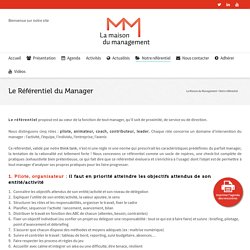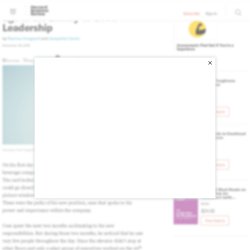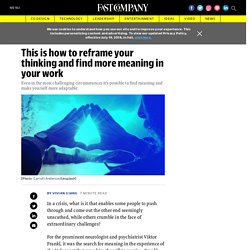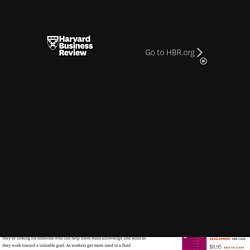

Guides. La Posture Managériale. Repenser le Leadership à l’Ere du Digital - Be RH Stéphane Pradines. La Révolution Digitale vient bouleverser nos habitudes de consommateurs, de citoyens et de travailleurs.

A la fois excitante (« Quelle est la dernière app qui fait fureur » ?) Et angoissante (« Les robots prendront-ils mon job ? »), elle a engagé l’économie et la société dans un processus global et irréversible face auquel nos organisations sont contraintes de s’adapter ou mourir (Darwin avait raison). Cette Digitalisation redessine en profondeur le paysage du Leadership économique : entre les GAFA (Google Amazon Facebook Apple) qui atteignent des valorisations financières records, des acteurs solides de l’économie traditionnelle (Cette notion a-t-elle encore un sens ?)
Réalisant leur transition numérique, les NewsPlayers jouant avec plus ou moins de succès les agitateurs sur tel ou tel marché, les lignes bougent … et viennent bousculer la vie de nombreux salariés. Les impacts de la Digitalisation sur nos organisations du travail Une question se pose alors… Que devient celui qui sait ?
Referentiel de management. Le référentiel de la Maison du Management. Le référentiel proposé est au cœur de la fonction de tout manager, qu’il soit de proximité, de service ou de direction.

Nous distinguons cinq rôles : pilote, animateur, coach, contributeur, leader. Chaque rôle concerne un domaine d’intervention du manager : l’activité, l’équipe, l’individu, l’entreprise, l’avenir. Ce référentiel, validé par notre think tank, n’est ni une règle ni une norme qui prescrirait les caractéristiques prédéfinies du parfait manager, la tentation de la rationalité est tellement forte ! Nous concevons ce référentiel comme un socle de repères, une check-list complète de pratiques (exhaustivité bien prétentieuse, ce qui fait dire que ce référentiel évoluera et s’enrichira à l’usage) dont l’objet est de permettre à tout manager d’analyser ses propres pratiques pour les faire progresser. 1. 2. 3. OpinionWay pour La Maison du Management x Le Salon du Management L'état de l'art du management en France Novembre 2017.
Ego Is the Enemy of Good Leadership. Executive Summary The inflated ego that comes with success – the bigger salary, the nicer office, the easy laughs – often makes us feel as if we’ve found the eternal answer to being a leader.

But the reality is, we haven’t. An inflated ego makes us susceptible to manipulation; it narrows our field of vision; and it corrupts our behavior, often causing us to act against our values. Breaking free of an overly-protective or inflated ego and avoiding the leadership bubble is an important and challenging job that requires selflessness, reflection, and courage. On his first day as CEO of the Carlsberg Group, a global brewery and beverage company, Cees ‘t Hart was given a key card by his assistant. Cees spent the next two months acclimating to his new responsibilities. When asked about the changes, Cees explained, “If I don’t meet people, I won’t get to know what they think. As we rise in the ranks, we acquire more power. An unchecked ego can warp our perspective or twist our values. How to find more meaning and purpose at work. In a crisis, what is it that enables some people to push through and come out the other end seemingly unscathed, while others crumble in the face of extraordinary challenges?

For the prominent neurologist and psychiatrist Viktor Frankl, it was the search for meaning in the experience of the Holocaust that gave him the will to survive. Frankl wrote about the horrifying experience in his celebrated book Man’s Search for Meaning and later established a school of existential therapy called logotherapy, which is the belief that a person’s underlying motivator in life is a “will to meaning,” or search for purpose–even in the worst of times. This philosophy opposed Freud’s will to pleasure principle and Friedrich Nietzsche’s concept of the will to power. But how do we seek meaning in challenging times? And how does that meaning then translate to cognitive flexibility?
Start with “why” The search for meaning starts with the question “why.” Great Employees Want to Learn. Great Managers Know How to Teach. Executive Summary There are three traits which all good teachers share and managers in any field can learn: how to define and communicate goals, how to identify and build necessary skills, and how to create opportunities for growth.

Put into practice, these attributes can help to create a positive environment filled with motivated and creative people, inside a school, a business, or any organization that relies on people to be creative and dedicated to shared goals. “I’d like to work for a manager I can learn from.” This phrase has come up again and again in interviews I’ve conducted for my team at the World Economic Forum and from more junior folks who I’ve met through various mentoring programs. These people aren’t looking for someone to lecture them, they’re looking for someone who can help them build knowledge and skills as they work toward a valuable goal. Define goals and communicate them clearly Good communication about goals goes both ways.